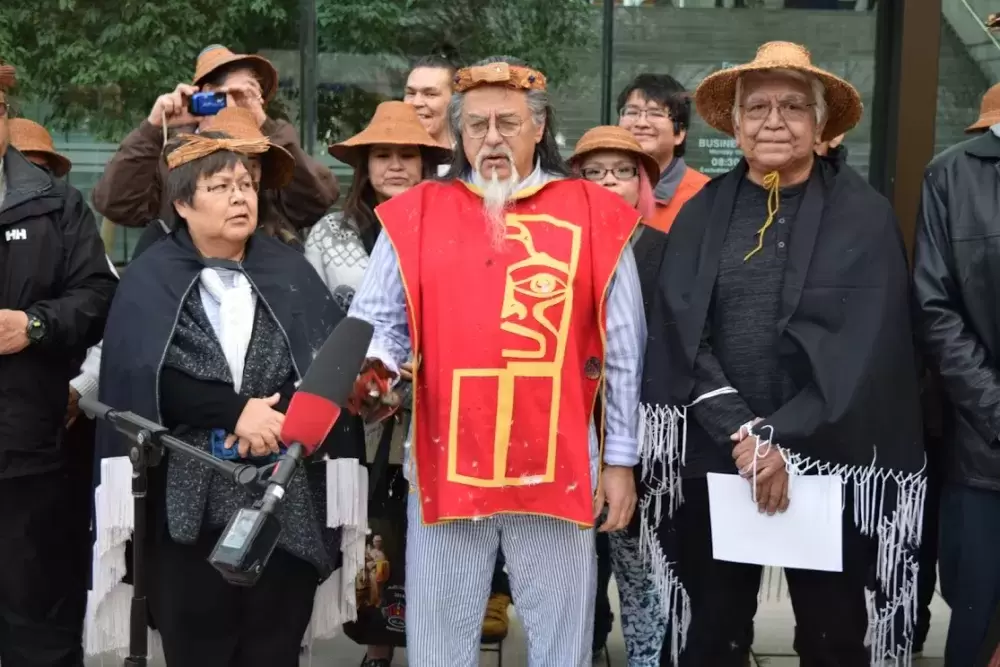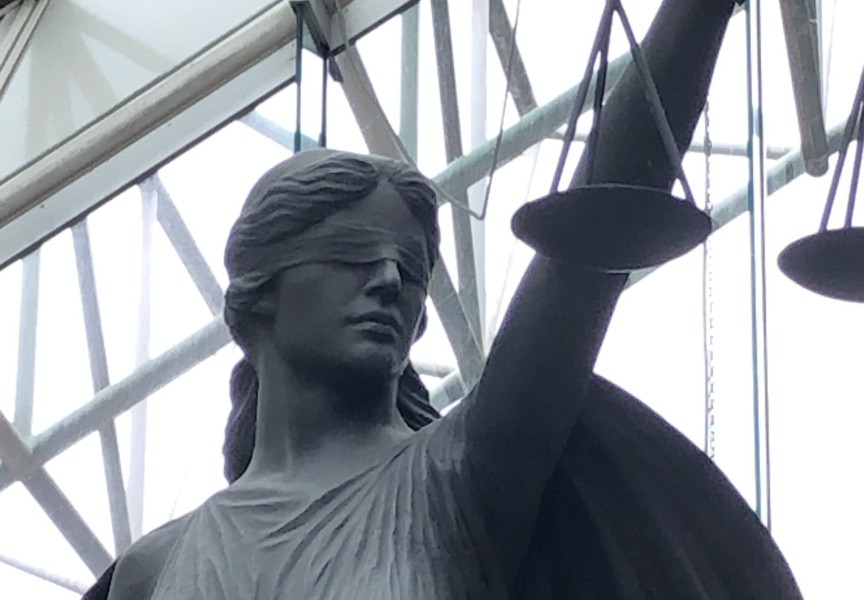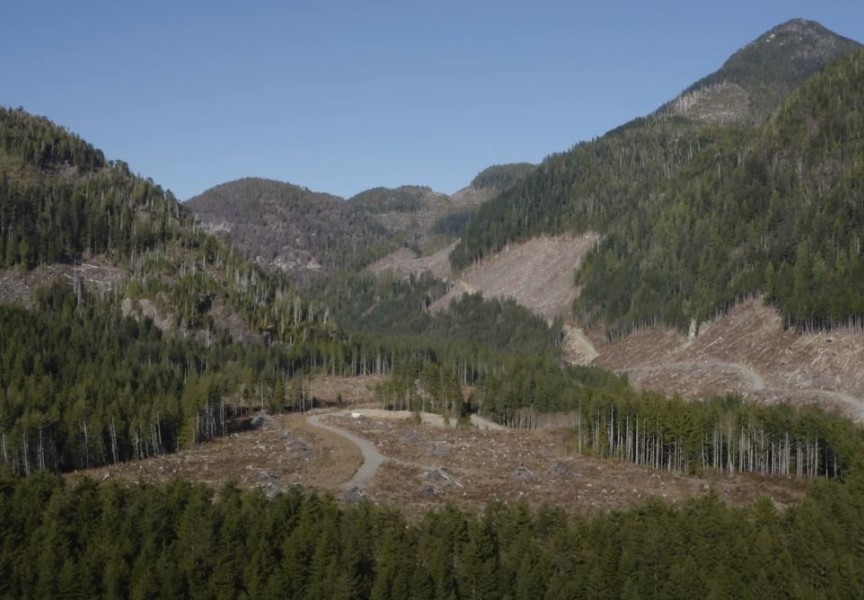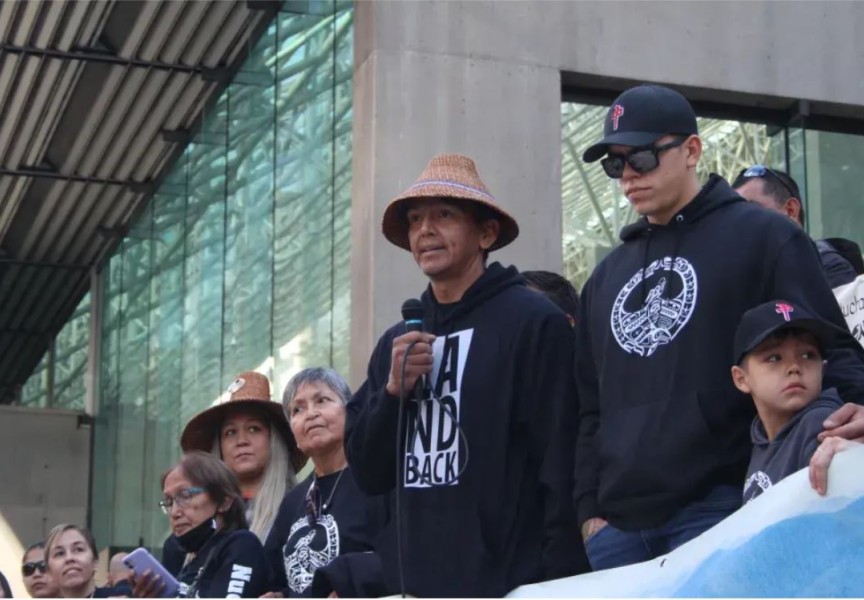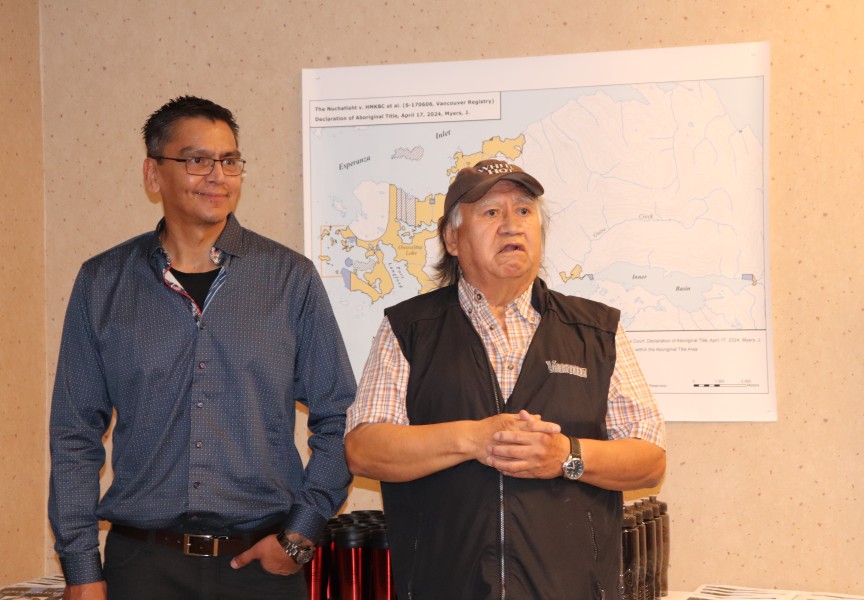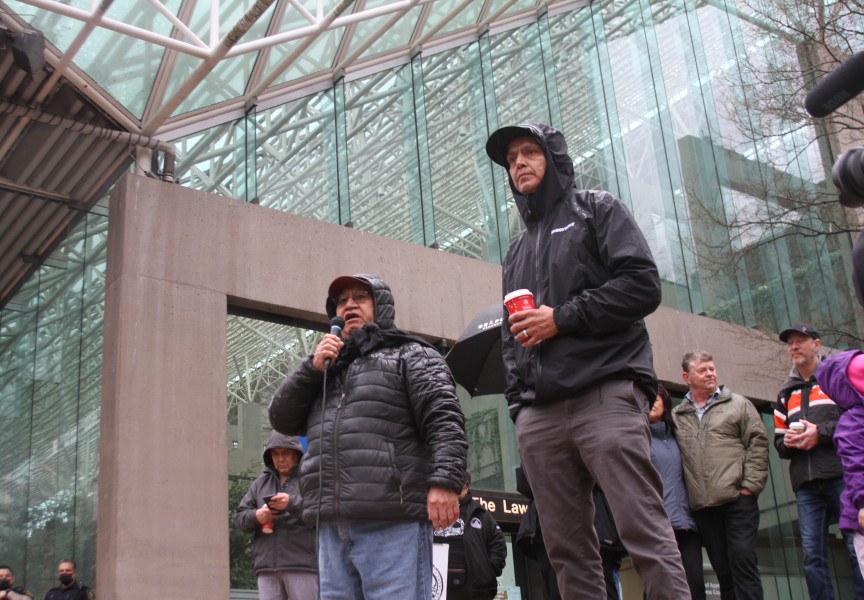Nuchatlaht leaders gathered on the courthouse steps in Vancouver Jan. 20 before filing a notice of civil claim that seeks official title of its territory on the west coast of Vancouver Island, basing the claim on the precedent set in June 2014 in the Tsilhqot’in decision.
The small nation’s hereditary leadership has never surrendered title, but say colonial industrial systems, including commercial fisheries and logging operations, have harmed its once pristine territory.
Councillor Archie Little said Nuchatlaht’s traditional government has existed for many thousands of years and the nation must now reassert its ownership of the land.
“The (resource) management schemes of today are all economically-driven which we don’t believe in,” Little said.
“People have to understand, precedent has been set. We don’t have to prove title. It’s there. A lot of the work has been done. ... They can’t just do as they please now.”
Nuchatlaht’s lawyer in the case, Jack Woodward, also worked with Tsilhqot’in Nation when it proved title to part of its historic territory in the Supreme Court of Canada, a case now lauded as having set a new standard for Indigenous land rights.
He called the Nuchatlaht’s case “historic” because it’s the first application of the Tsilhqot’in decision, and will likely be the first follow-up case to go to trial.
“All other Canadians expect that if they’re left land in a will, if their ancestors owned something, then they’re entitled to own it,” Woodward said.
“These people have been denied that and this is an attempt to rectify the situation.”
Though the Nuchatlaht community has a population of less than 200 people and has suffered from poverty post-contact, Woodward said the nation won’t go broke paying legal costs because title cases have become accessible.
“I believe that the precedents that have been set have cut through all of the procedural and technical barriers,” he said.
“It’s now possible for First Nations to achieve justice without spending a fortune.”
Tyee Ha’wilth (Hereditary Chief) Walter Michael said going to the courts is a last resort after many unsuccessful years of dealing with colonial governments at the treaty table and beyond.
“Successive governments have failed to give the Nuchatlaht serious iisaak (respect) for their rights and title,” he said.
“These governments need to hear from the court system to allow us to restore and protect our ancestral lands for the benefit of all future generations.”

